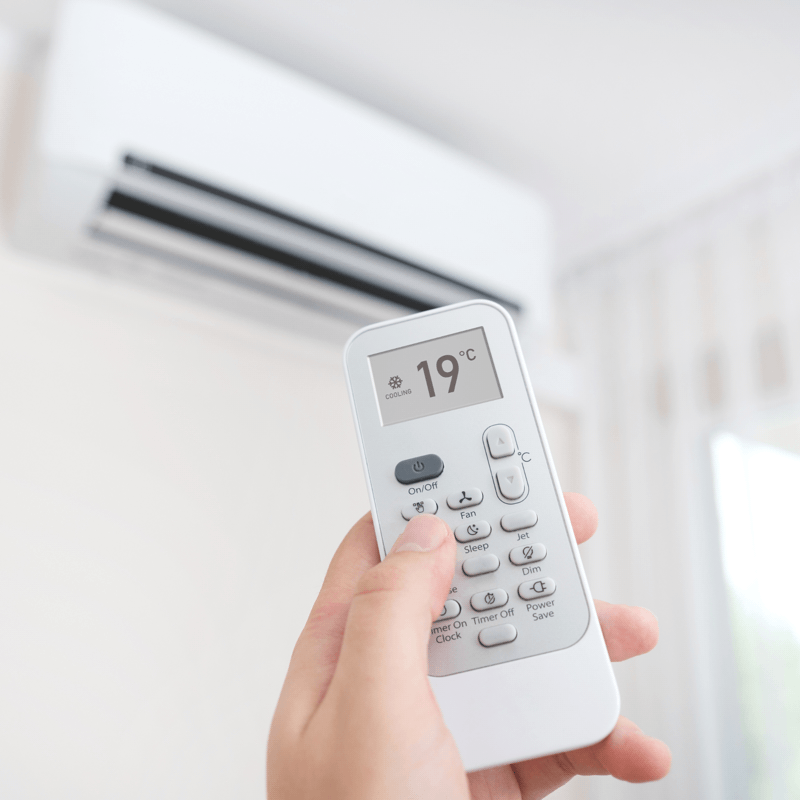As the summer sun blazes outside, finding the perfect balance of coolness and energy efficiency inside your home becomes paramount. In this comprehensive guide, we will explore the intricate world of air conditioning, from scientific reasons to tips for maximum comfort and saving.
First, let us understand how air conditioners work. Air conditioners regulate indoor temperature by removing heat and humidity from the air, creating a comfortable environment for residents. The temperature setting on your thermostat dictates the intensity of cooling provided by the system.
Are you considering installing air conditioning in your home? Get in contact with our experts for a free consultation to discuss the best solution as per your requirements.
Call us at 020 3620 5800 or email us hello@southlondonheating.co.uk or chat with us on WhatsApp at 0788 052 7500.
Factors Affecting Air Conditioning Temperatures
There are various factors affecting the temperature setting of your air conditioners; some of them are mentioned:
1. Indoor Humidity Level
High humidity levels can make the indoor environment feel warmer than it is. Air conditioners cool air and dehumidify it, providing additional comfort during humid summer days.
2. Outdoor Temperature and Insulation
Well-insulated homes retain cool air better, reducing the workload on your AC unit and promoting energy efficiency. Residents are advised to seal any cracks and gaps in the windows and doors to prevent the cool air from escaping.
3. Airflow and Ventilation
Proper airflow and ventilation are essential for maintaining consistent temperatures throughout your home. Ensure that vents are unobstructed and air filters are clean for maximum airflow and system efficiency.
4. Home Layout and Orientation
The layout and Orientation of your home can affect how heat is distributed and retained; homes with large windows facing east or west experience more significant temperature fluctuation due to direct sunlight exposure.
Best Air Conditioner Temperature Settings
Finding a suitable air conditioner temperature in summer that is comfortable and saves energy requires analysing a lot of external factors and personal preferences. Here are some general guidelines for setting up an ideal setting for your air conditioner:
During Daytime
Set up your air conditioner to 25°C or 77°F. This temperature is widely regarded as a sweet spot for balancing energy efficiency while giving you comfort. It is cool enough to provide relief from heat and prevents systems and air conditioners from over working and overheating.
During Nighttime
A setting of air conditioner temperature between 23°C or 73°F to 24°C or 75°F is often comfortable for sleeping. The body’s need for a cool atmosphere decrease as we sleep; therefore, we can afford to keep the temperature a little bit higher during the night.
When Away
If you are going away, there is no need to cool down your home to 24-25°C if no one is at home. Modern air conditioners can cool down a room quickly so that you can return to your preferred temperature.
High Humidity
If the humidity is high, then setting the temperature lower than 25°C or 77°F is necessary to feel comfortable. The high moisture levels can make the air feel warmer than it actually is.
Low Humidity
In the dry climates, you might find that setting the temperature a bit higher than 25°C or 77°F is still comfortable. As there is a lack of moisture in the air, the dry air helps sweat evaporate more quickly and cool your body more efficiently.
Personal Preferences
Personal Preference plays a vital role in picking the best temperature for air conditioners during summer. Some individuals may prefer a cooler or warmer environment. It is important that you choose a temperature that suits you and your preferences.
Should You Leave Your Air Conditioner on All Day During the Summer?
Leaving your air conditioner on all day is a good idea but ensure that auto settings are on. Once the room has attained the desired temperature, the fan and air conditioner will turn off; however, an optimal temperature will be maintained throughout the day.
It will turn on and off sporadically throughout the day when the room warms up or cools down, which will help in reducing energy consumption.
Conclusion
Achieving the perfect balance of comfort and energy efficiency with your air conditioning system requires careful consideration of various factors, including temperature setting, humidity levels and home insulation.
You can enjoy a cool and comfortable indoor environment while minimising energy costs and environmental impacts, if you regularly maintain your air conditioner and plan the usage.





